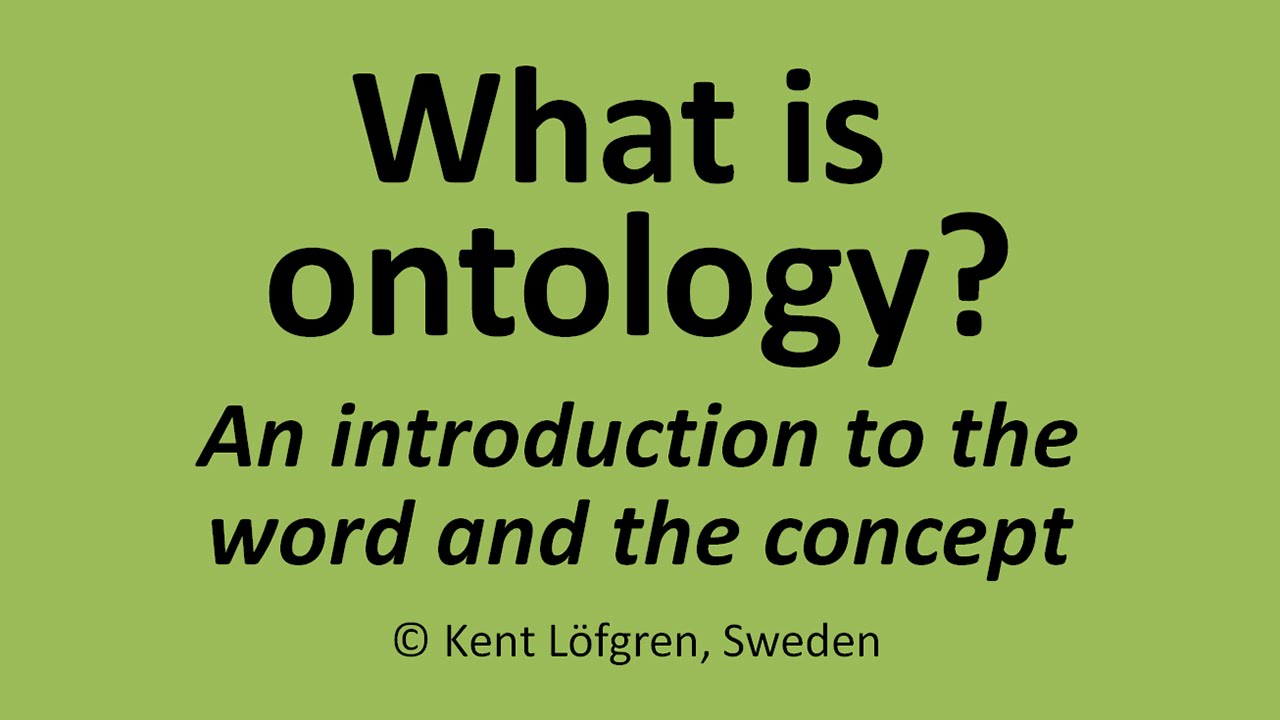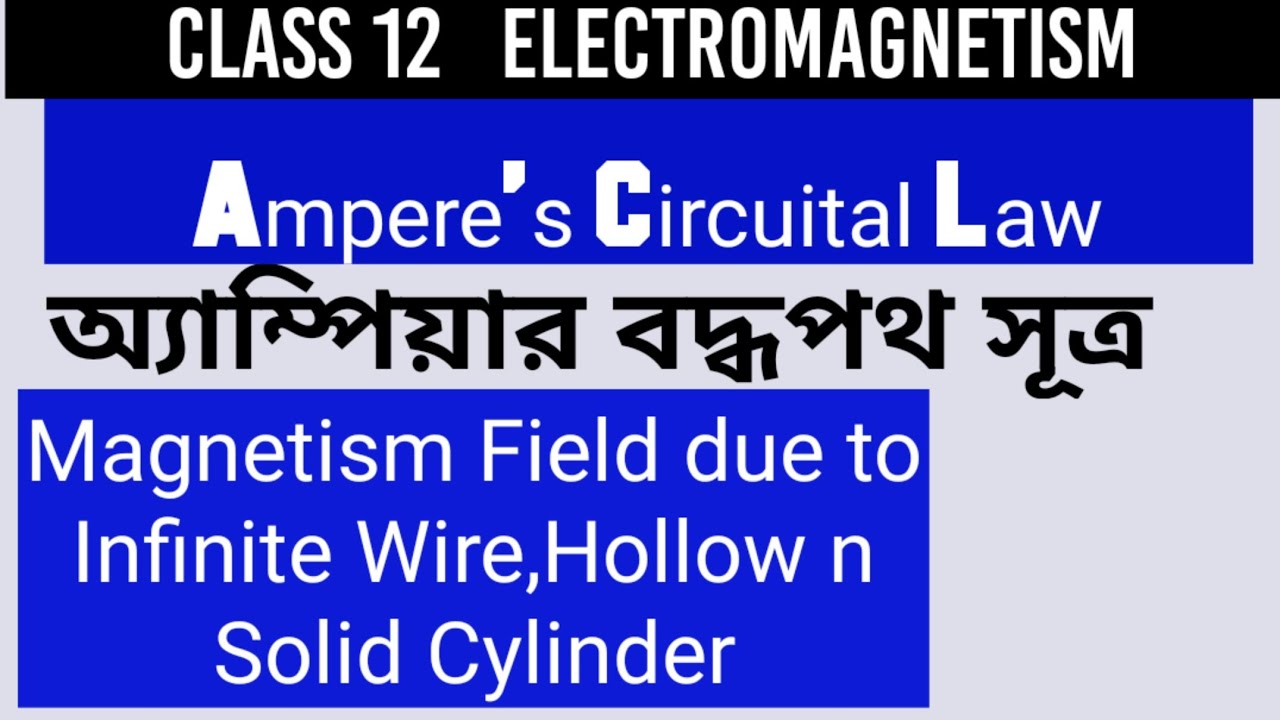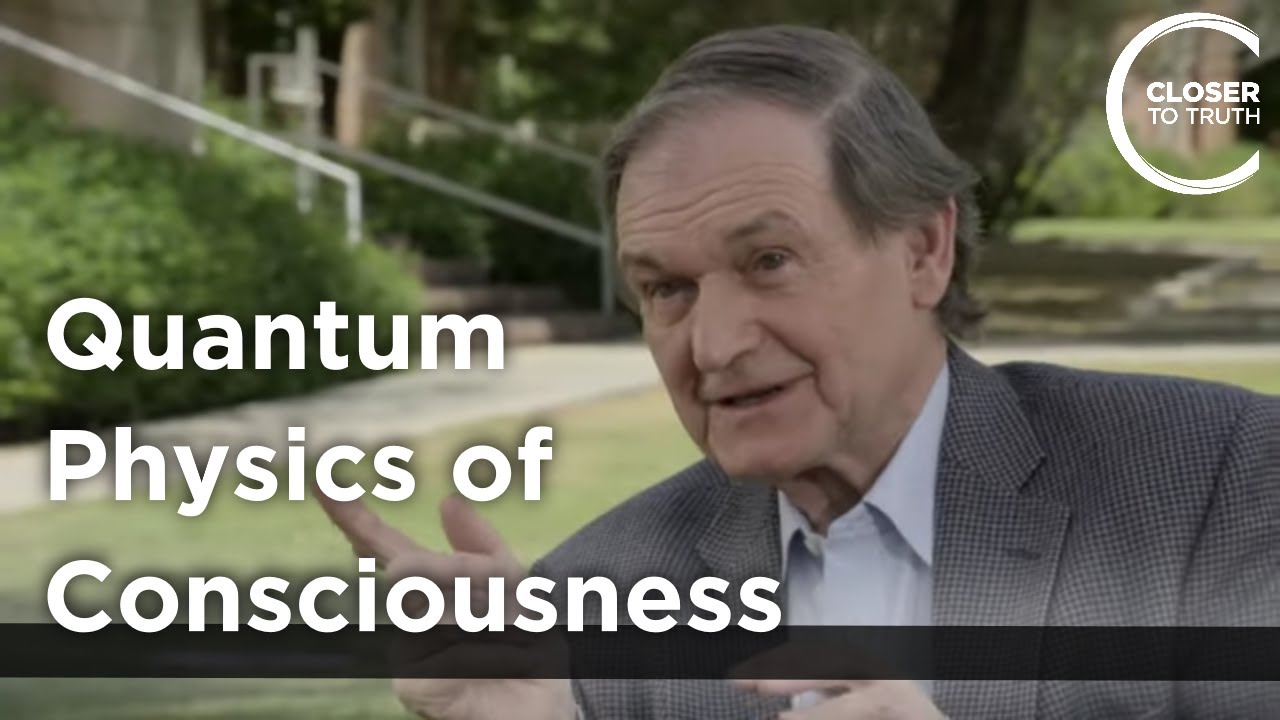Kent Löfgren
In a philosophical context 0:28
Why ontology is important 1:08
Ontological materialism 1:34
Ontological idealism 1:59
In a non-philosophical context 2:24
Information systems 2:40
Social ontology 3:25
The word ontology comes from two Greek words: “Onto”, which means existence, or being real, and “Logia”, which means science, or study. The word is used both in a philosophical and non-philosophical context.
ONTOLOGY IN A PHILOSOPHICAL CONTEXT
In philosophy, ontology is the study of what exists, in general. Examples of philosophical, ontological questions are: What are the fundamental parts of the world? How they are related to each other? Are physical parts more real than immaterial concepts? For example, are physical objects such as shoes more real than the concept of walking? In terms of what exists, what is the relationship between shoes and walking?
Why is ontology important in philosophy?
Philosophers use the concept of ontology to discuss challenging questions to build theories and models, and to better understand the ontological status of the world.
Over time, two major branches of philosophical ontology has developed, namely: Ontological materialism, and ontological idealism.
Ontological materialism
From a philosophical perspective, ontological materialism is the belief that material things, such as particles, chemical processes, and energy, are more real, for example, than the human mind. The belief is that reality exists regardless of human observers.
Ontological idealism
Idealism is the belief that immaterial phenomenon, such as the human mind and consciousness, are more real, for example, than material things. The belief is that reality is constructed in the mind of the observer.
ONTOLOGY IN A NON-PHILOSOPHICAL CONTEXT
Outside philosophy, ontology is used in a different, more narrow meaning. Here, an ontology is the description of what exist specifically within a determined field. For example, every part that exists in a specific information system. This includes the relationship and hierarchy between these parts.
Unlike the philosophers, these researchers are not primarily interested in discussing if these things are the true essence, core of the system. Nor are they discussing if the parts within the system are more real compared to the processes that take place within the system. Rather, they are focused on naming parts and processes and grouping similar ones together into categories.
Outside philosophy, the word ontology is also use, for example, in social ontology. Here, the idea is to describe society and its different parts and processes. The purpose of this is to understand and describe the underlying structures that affect individuals and groups.
Suggested reading
You can read more about ontology in some of the many articles available online, for example:
http://www.streetarticles.com/science/what-is-ontology
Copyright
Text and video (including audio) © Kent Löfgren, Sweden
Source




Well done!
Du har reddet oss HF-studenter i mange år nå
Good argument.
Basically the science of being. It reveals philosophical parts of the world an how they are related to each other. Parallel to that it brings light to objects in the physical world and therefore provides a sense of how our world looks.
So… Buy ONT?
Är ontologi sk realism och materialism samma sak?
thank you
Thanks. A Word I find used by many to make their statement more muddy rather more concise.
nice man
Dont buy ONT..cant you see they backing up NEO …. same scamers
FULL OF MAD IDEAS ……USELESS……NONSENSE
But Consciousness is physical?
The ontological necessity of modern man's existential dilemma.It's lojia.
Good straightforward info!
Good video
Great video, and concise. Thank you!
Thank you, sir!
V nice
More Philosophy videos like this pls! Thank you. Learned well.
Ontology is also used in the anthropological field of cultural ecology, where it describes the perception of a society regarding their culture in comparison to the meaning of nature or the environment, so the hierarchy between the two. The naturalistic ontology in this case resembling the materialistic ontology, which is predominant in most western societies, assumes there is a dichotomy between culture and nature, because in this ontology we have created systems and structures that separate us from nature, we think of humans and their culture as something different with a clear distinction to what we define as "nature". Other societies and cultures, under the ontology of animism for instance, do not make a distinction between humans and nature, they see their culture as a part of and embedded into nature, there is no conceived separation between the two concepts, hence some groups with an ontology like this would not exploit nature for its resources as drastically as we do. To the concept of ontology also always comes the factor of objective truth, for example the naturalistic ontology denies many perceptions of sorcery and witchcraft any probable reality because they don't conform with science, while in other ontologies these ideas might have an actually experiencable truth to the people and actual functionality for society. In short our ontology is how we see ourselves in the world and what our position is. Every group or even individual has an ontology that they live after, even if it's not a conscious thought.
Geez! This is worse than German grammar! This is like a vacuum cleaner that comes with a 600 page manual. The word probably means “One who tries to explain that which cannot be explained”!
Thank you. This is brief and to the point
Really clear. Thanks!
What do you mean by.. "more real".. Is there a scale for.. realness?
I guess, (david humean) Nietzsche do not believe in Being. Does he believe in beings? The ultimate ontology as we been discussing is the Being. And that will be the ultimate Good. The ultimate Reason for existence. And on the other hand the beings are the evil. They will pull the Universe apart.
I wonder, if there is no written language there will be ontology at all. Without "seeing" the words maybe we will never come to the notion of "is". How can there be existence/non-existence thought in the world without language? This is not a logical argument.
Simply sounding out conclusions that are extracted from distinctions such as speech and writing. ( is speech and writing different entities or speech and writing come under the same entity called language?)
Good Job Sir , its really Helpful !
Stort tack för denna övergripande förklaring till ontologi..!
"what is ontology… LETS FIND OUT"
Thank you I enjoyed this – clear concise and a pleasure to listen to and read ..
What's the difference between "real" & "more real"? Why do you use the term "more real"? "Shoes" is a noun, & "Walking" is a verb; so they both are real, but they belong to separate parts of speech. Right? Thanks.
We know it, all of us, some maybe unconscious about it. It simplifies the concepts. Ontologies differ among human beings even within the same group.
Very useful, thank you!
great video
Why do ontological materialists believe that human consciousness is less real than the material world? Seems like one is making a mind-body distinction with that point of view.
Just found this channel by chance. Wish I'd found it sooner, I already had a comprehension of these concepts but your presentation is so concise and elegant I really enjoyed it. Thanks for sharing.
I just believe that everything is equally real.
Thank you for the video.
My father is more of a materialist. He thinks that the world's problem will be solved with money. Kiyosaki is a materialist. Wala ung ideals, invisible parts that connect the real. It's more of the tip of the iceberg. I am more of an idealist, an Existentialist to be exact. Reading the "patterns" of Jesus Christ, is more like a Deconstruction. Pag idedeconstruct mo si JC, rather than dogmatize him, like what Paul did thus the Paulinian Theology. Kung magiging materialist ka, para kang ungga tungga. Wala kang pinag-aralan. Manny Villar is also a Materialist. If the Rich Young Man has existential problems with being rich, Manny Villar has none. Like what Pope Francis said: the 20 yrs old who has it all and has nothing more to gain. Emptiness doesn't exist in the consciousness of materialists and hedonists (Paris Hilton) kasi pepe and titi lang ang gumagana sa kanila like a dog/bitch fucking anyone they see on the streets.
Finally an explanation that I can understand, thank you so much for this video!
Nice.
this video helped me understand a research paper, thank you!
Thank you! This video was super helpful in defining ontology. My lecture mentioned the philosophical aspect but I found it confusing.
Such a great explanation. Do you any references of what you have shared in your video? I would love use it for my assignment
to understand ontology and epistomology require very very simple examples of day to day life.
Using ontology as an example in class today. You explained this perfectly.